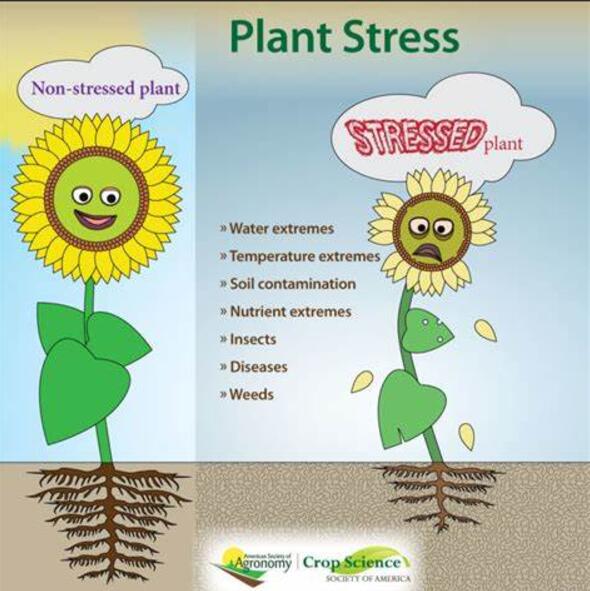Roots of resistance: Unraveling microbiome-driven plant immunity
IF 6.8
Q1 PLANT SCIENCES
引用次数: 0
Abstract
The intricate interplay between microbiome and plant immunity represents a frontier in plant biology with significant implications for agriculture and ecosystem management. This review explores intricate relationship between plant immunity and the microbiome, highlighting its significance in addressing current agricultural and environmental challenges. The plant immune system, comprising pattern-triggered immunity (PTI) and effector-triggered immunity (ETI), plays crucial role in shaping microbial communities in the rhizosphere. Phytohormones such as salicylic acid, jasmonic acid, and ethylene are the key modulators of plant defenses and contribute to rhizosphere microbiome composition. The concept of defense priming and plant immune memory emerges as a promising avenue for enhancing crop resilience against phytopathogens and environmental stresses. Root exudates and plant defense signatures actively influence rhizosphere microbiome structure, establishing a bidirectional relationship between plants and their microbial partners. This interaction is particularly relevant in the context of climate change, where plants face increasing biotic and abiotic stresses. Understanding and leveraging these complex interactions holds promise for developing more sustainable agricultural practices, reducing reliance on chemical inputs, and ensuring food security in the face of global challenges. We have stressed upon the importance of viewing the plant-soil-microbiome system as an integrated unit or holobiont. As agriculture grapples with the challenges of feeding a growing population under changing environmental conditions, harnessing the power of plant-microbiome interactions presents a promising strategy for improving food security and promoting ecosystem health.
抗性的根源揭示微生物驱动的植物免疫力
微生物组与植物免疫之间错综复杂的相互作用是植物生物学的一个前沿领域,对农业和生态系统管理具有重要影响。本综述探讨了植物免疫与微生物组之间错综复杂的关系,强调了微生物组在应对当前农业和环境挑战方面的重要意义。植物免疫系统包括模式触发免疫(PTI)和效应触发免疫(ETI),在塑造根圈微生物群落方面发挥着至关重要的作用。水杨酸、茉莉酸和乙烯等植物激素是植物防御的关键调节剂,并对根圈微生物群的组成做出了贡献。防御启动和植物免疫记忆的概念是提高作物抵御植物病原体和环境胁迫能力的一个很有前途的途径。根系渗出物和植物防御特征会积极影响根圈微生物群结构,从而在植物及其微生物伙伴之间建立起一种双向关系。在气候变化的背景下,植物面临越来越多的生物和非生物胁迫,这种互动关系尤为重要。了解并利用这些复杂的相互作用,有望开发出更可持续的农业实践,减少对化学投入品的依赖,并在全球挑战面前确保粮食安全。我们强调了将植物-土壤-微生物组系统视为一个综合单元或整体的重要性。随着农业努力应对在不断变化的环境条件下养活不断增长的人口的挑战,利用植物-微生物组相互作用的力量,是改善粮食安全和促进生态系统健康的一项大有可为的战略。
本文章由计算机程序翻译,如有差异,请以英文原文为准。
求助全文
约1分钟内获得全文
求助全文
来源期刊

Plant Stress
PLANT SCIENCES-
CiteScore
5.20
自引率
8.00%
发文量
76
审稿时长
63 days
期刊介绍:
The journal Plant Stress deals with plant (or other photoautotrophs, such as algae, cyanobacteria and lichens) responses to abiotic and biotic stress factors that can result in limited growth and productivity. Such responses can be analyzed and described at a physiological, biochemical and molecular level. Experimental approaches/technologies aiming to improve growth and productivity with a potential for downstream validation under stress conditions will also be considered. Both fundamental and applied research manuscripts are welcome, provided that clear mechanistic hypotheses are made and descriptive approaches are avoided. In addition, high-quality review articles will also be considered, provided they follow a critical approach and stimulate thought for future research avenues.
Plant Stress welcomes high-quality manuscripts related (but not limited) to interactions between plants and:
Lack of water (drought) and excess (flooding),
Salinity stress,
Elevated temperature and/or low temperature (chilling and freezing),
Hypoxia and/or anoxia,
Mineral nutrient excess and/or deficiency,
Heavy metals and/or metalloids,
Plant priming (chemical, biological, physiological, nanomaterial, biostimulant) approaches for improved stress protection,
Viral, phytoplasma, bacterial and fungal plant-pathogen interactions.
The journal welcomes basic and applied research articles, as well as review articles and short communications. All submitted manuscripts will be subject to a thorough peer-reviewing process.
 求助内容:
求助内容: 应助结果提醒方式:
应助结果提醒方式:


